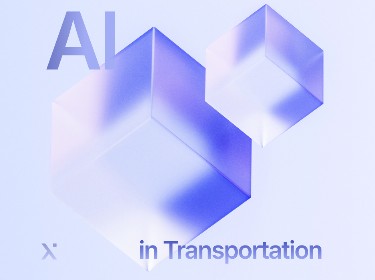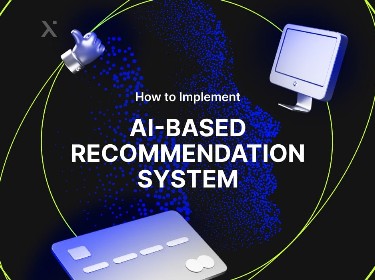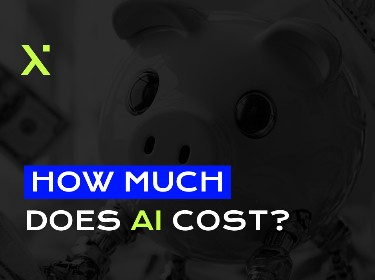Do we have to give up our personal data to teach AI and benefit from its advancements? This question raises concerns among both users and businesses, who recognize the potential implications for their reputation and financial well-being.
AI’s influence extends beyond boundaries, touching every aspect of our lives: from the way we interact with technology and make decisions to the products and services we encounter in our daily routines. While there is a great deal of excitement surrounding the tech, it also brings about concerns related to data privacy and security.
According to the Cisco 2022 Consumer Privacy Survey, 43% of respondents acknowledge that AI is indeed making their lives better, with 54% expressing willingness to share their anonymized data to enhance AI-powered products. However, 60% of consumers express concerns about how organizations currently utilize their personal data for AI.
These findings emphasize the delicate balance between the perceived benefits of AI and the need for responsible data handling.
In this article, we will delve deeper into AI and privacy risks for businesses, examine real-life cases of data privacy violations with our data consultants, and explore actionable steps that companies can take to address these pressing issues.
Let’s get started!
What types of data does AI typically use?
![]()
AI models and algorithms require various types of data sets for training, evaluation, and testing purposes. These include:
- Text data sets. These consist of textual information like news articles, social media posts, and chat logs. They are often used for natural language processing (NLP) tasks, such as sentiment analysis, language translation, and text generation.
- Image and video data sets. Image data sets are fundamental for computer vision tasks, encompassing image classification, object detection, image segmentation, and style transfer. Video data sets, in their turn, play a crucial role in content analysis tasks like action recognition, video captioning, and object tracking.
- Audio data sets. These data sets are used in speech recognition, speaker identification, and audio classification tasks. They typically consist of audio recordings, transcriptions, or labeled speech segments.
- Tabular data sets. Tabular data sets are structured data presented in rows and columns, similar to a spreadsheet. They are commonly used for machine learning tasks like regression and classification.
- Time series data sets. These contain data points placed in chronological order. They are used for forecasting, anomaly detection, and trend analysis. Examples include stock market data, weather patterns, and sensor readings.
- Synthetic data sets. Sometimes synthetic data sets are created to augment existing data or address privacy concerns. These data sets are generated by algorithms to resemble real data while preserving certain characteristics.
It is important to note that AI applications often utilize personal data as part of their training and operational processes. This can include names, addresses, social security numbers, email addresses, biometric data, financial information, and more. This is why it’s essential to handle personal data responsibly and adhere to data protection regulations to safeguard individuals’ privacy and prevent misuse of their information.
Find out more about our big data consulting services and discover how we can help your company gain valuable insights and make informed decisions
Understanding the business concerns associated with AI and privacy
![]()
At the intersection of AI and privacy, there are critical business concerns encompassing data privacy and security issues, bias and discrimination, and lack of user consent and control. Understanding these problems is vital for the safe and responsible implementation of AI in your business. Let’s take a closer look at each of them.
Data privacy and security issues
While privacy is universally acknowledged as a fundamental human right, the misuse and abuse of data intensify privacy and security concerns in today’s digital era. Since AI systems often rely on vast amounts of data to train and improve their performance, if not handled with care, it can lead to severe consequences.
For instance, businesses might use AI algorithms to analyze customer data for targeted marketing campaigns. This can enhance user experiences, but it also raises concerns about data privacy. If the data is shared with third parties without explicit consent or if it falls into the wrong hands due to inadequate security measures, individuals’ sensitive information could be exposed, leading to privacy breaches and potential harm.
To mitigate AI privacy concerns related to data misuse and abuse, businesses must establish robust data governance policies and ensure that all data processing complies with relevant privacy regulations.
Check out Smart Mall — our AI-powered data analytics solution for retailers and customers
Bias and discrimination
AI systems are developed based on massive data, and if this data is biased or contains discriminatory patterns, it can lead to biased decision-making.
For example, AI applications used in hiring may favor certain candidates based on gender, race, or other characteristics, which will make the recruitment process unfair and discriminatory. Similarly, AI-powered customer service platforms could treat customers differently based on their personal attributes, leading to discrimination against certain groups.
To address this concern, businesses must prioritize the development of AI systems that are designed to be fair, transparent, and accountable. This involves thoroughly auditing the training data to identify and mitigate potential biases.
Regular monitoring of AI algorithms in real-world scenarios are also necessary to detect and get rid of any biases that may emerge over time. By doing so, businesses can ensure that their AI systems uphold privacy and human rights, while fostering trust with their customers and stakeholders.
Lack of user consent and control
As businesses strive to use AI technologies to improve personalized experiences and recommendations, obtaining consent for collecting user data becomes essential.
These days, most websites won’t allow access to their services unless users click “Yes” to their privacy policy and conditions. This way, applications give users no choice and constrain them to share their private data. They might not even know how much data is being collected or how it will be used.
To improve the situation, businesses must prioritize transparency and user-centric consent mechanisms in their AI and ML solutions. They should turn to an expert machine learning consulting company that will help offer granular options that allow users to customize what data they are comfortable sharing and for what specific purposes.
Real-life examples of AI privacy and security violations
How does AI affect privacy? Here are several specific cases where companies utilizing AI have faced accusations of privacy violations, showcasing the growing conflicts between AI and data privacy.
Facebook and AI mislabeling
In 2021, Facebook faced backlash when its AI-powered recommendation feature prompted users who had watched a video featuring Black men to “keep seeing videos about Primates.” The video had no relation to primates, and the message was considered offensive and unacceptable.
This incident led to Facebook investigating the issue and subsequently disabling the AI-based feature. The company issued an apology, acknowledging the imperfections of their AI technology and promising to prevent such violations from happening in the future.
This situation sheds light on the ongoing concerns surrounding privacy and AI, particularly those related to race bias.
Clearview AI and its facial recognition database
Clearview AI, an American facial recognition company, sparked significant controversy and multiple lawsuits when it was found to be scraping billions of images from social media sites for its facial recognition database. The company’s tool was reportedly used by more than 600 law enforcement agencies within a year of its creation, leading to concerns about mass surveillance and the potential for misuse.
According to the European Data Protection Board (EDPB), in 2022, Italian, French, and Greek privacy regulators each imposed a fine of €20 million οn Clearview AI for the unlawful processing of personal data and several other violations.
In addition to the financial repercussions, the authorities ordered the company to completely erase any data it had collected on their citizens. The company was also prohibited from further processing any facial biometrics of individuals in these countries.
AI Dungeon and private user content
In 2021, AI Dungeon, a popular AI-driven text-based game developed by Latitude, faced criticism when it was revealed that it was using AI to monitor and censor private user content. The company initially claimed that all content generated in the game was confidential, leading to a significant backlash from the user community.
ChatGPT and privacy concerns
Some businesses are currently taking measures to prevent their employees from using generative AI solutions like the ChatGPT bot due to privacy and security concerns. Such chatbots learn from the information they receive, which means that any sensitive data entered into the system remains there.
In addition to this, some companies work in highly regulated industries like finance and healthcare, where customer data protection is crucial. Using third-party software like ChatGPT without proper control can bring significant risks, including legal and reputation problems.
For example, JPMorgan Chase & Co., an American multinational financial services firm, recently implemented restrictions on its employees’ use of the ChatGPT chatbot. While the decision was not directly triggered by any specific incident, it aligns with the company’s standard controls around third-party software and applications.
Want to develop your own AI chatbot while maintaining a strong focus on privacy? Our services offer a seamless integration of AI and privacy measures
Possible solutions to address AI privacy issues in business
![]()
Addressing AI and privacy issues involves a multifaceted approach that includes auditing AI systems for bias and discrimination, prioritizing data security in AI design, and strict adherence to data privacy and security laws. It is also vital to provide employees with proper training on the safe and responsible use of AI tools.
Let’s examine each of these solutions.
Auditing for bias and discrimination
It is absolutely necessary to examine AI algorithms to prevent unintentional discriminatory practices or biased decision-making. By identifying and rectifying these biases, businesses can create fairer, more transparent AI systems that respect users’ privacy and avoid harm. A data analytics company plays a crucial role in this process by offering expertise in analyzing and auditing AI systems for potential biases. These companies provide the tools and methodologies needed to evaluate data inputs, the modeling process, and outcomes systematically.
Performing an audit for bias and discrimination in AI systems involves several important steps:
- Your company should clearly define what constitutes bias in your specific context
- Data scientists, ethicists, and legal professionals should systematically review the algorithm’s data inputs, modeling process, and outcomes for discrimination
- The findings of these audits should be effectively communicated to all stakeholders
A process of continuous monitoring and reassessment should also be implemented, as AI systems are dynamic and constantly evolving.
Designing AI solutions with data security in mind
AI and privacy should be your top priority when designing a new application. This means incorporating robust security measures at the heart of your AI system, from the initial stages of development through to deployment and maintenance. You need to monitor how data is collected, stored, processed, and shared to ensure all activities are secure and follow top-tier data protection standards.
When designing secure AI solutions, it’s also necessary to implement encryption for data at rest and in transit, thereby shielding sensitive information from unauthorized access. Additionally, conducting regular checks for system vulnerabilities and running penetration tests can help spot potential weaknesses and boost your system’s overall security.
Meet PixelPlex's AI retina disease diagnosis tool that uses advanced ML algorithms to pinpoint symptoms and record data for accurate diagnosis
Adhering to data privacy and security laws
Countries around the world have established their own data privacy and security laws to safeguard personal information and regulate how businesses handle this data. It’s crucial that these laws are considered and adhered to when incorporating AI tools into a company’s operations.
For example, within the European Union (EU), the General Data Protection Regulation (GDPR) provides extensive regulations that mandate businesses to safeguard the privacy and personal data of EU citizens. What’s important is that if your business handles personal data of EU citizens or residents, or provides goods or services to them, GDPR’s jurisdiction extends to your operations as well, regardless of whether your business is physically located in the EU.
Although the United States doesn’t have a unified federal data protection law, it has sector-specific laws such as the Health Insurance Portability and Accountability Act (HIPAA) for healthcare data, the California Consumer Privacy Act (CCPA) for businesses that collects personal information about consumers, and the Gramm-Leach-Bliley Act (GLBA) for the financial services industry, among others.
Brazil’s Lei Geral de Proteção de Dados (LGPD) closely mirrors the GDPR and establishes strict requirements for data collection, storage, processing, and consent.
In the Asia-Pacific region, countries like Japan, Australia, and Singapore have implemented comprehensive data protection laws like the Act on the Protection of Personal Information (APPI), Privacy Act 1988, and Personal Data Protection Act (PDPA), respectively.
As these laws vary significantly, businesses must be aware of the different regulations in the countries where they operate, ensuring they meet each jurisdiction’s specific requirements in their AI systems.
Delve deeper into the AI-related laws implemented in various countries to identify the ones your business should adhere to
Training employees to use AI tools safely
As artificial intelligence becomes more integrated into daily operations, it’s vital for staff to understand not only how to use these tools effectively, but also how to handle them in a way that respects and protects privacy.
Employee training should cover several key areas. Firstly, it should provide a basic understanding of AI and privacy concerns, so that employees can recognize potential risks. Secondly, it should teach best practices for safe data handling, including limiting access to sensitive data, ensuring data is securely stored and transmitted, and complying with relevant data protection laws.
Lastly, training should include how to respond to privacy incidents: identify breaches, implement mitigation measures, and report procedures.
Ongoing training and refreshers are also important, as AI technologies and associated legal and ethical considerations are constantly evolving. By ensuring that all employees are well-versed in the secure use of AI tools, businesses can significantly reduce the risk of privacy issues.
Final thoughts
Since AI continues to permeate various industries and aspects of daily life, the pressing issue of privacy remains at the forefront. It is crucial for businesses to strike a balance between leveraging the power of AI and safeguarding personal data.
As a software company offering advanced artificial intelligence development services, we can play a pivotal role in helping our clients navigate this complex landscape. We deliver tailor-made AI solutions that are not only efficient and capable of driving business growth, but also adhere to the highest standards of data privacy.
By placing privacy at the core of our AI applications, we not only protect end-users’ personal data but also build trust, strengthening the bond between businesses and their customers, thereby helping companies grow. Contact us and let your project get started!




